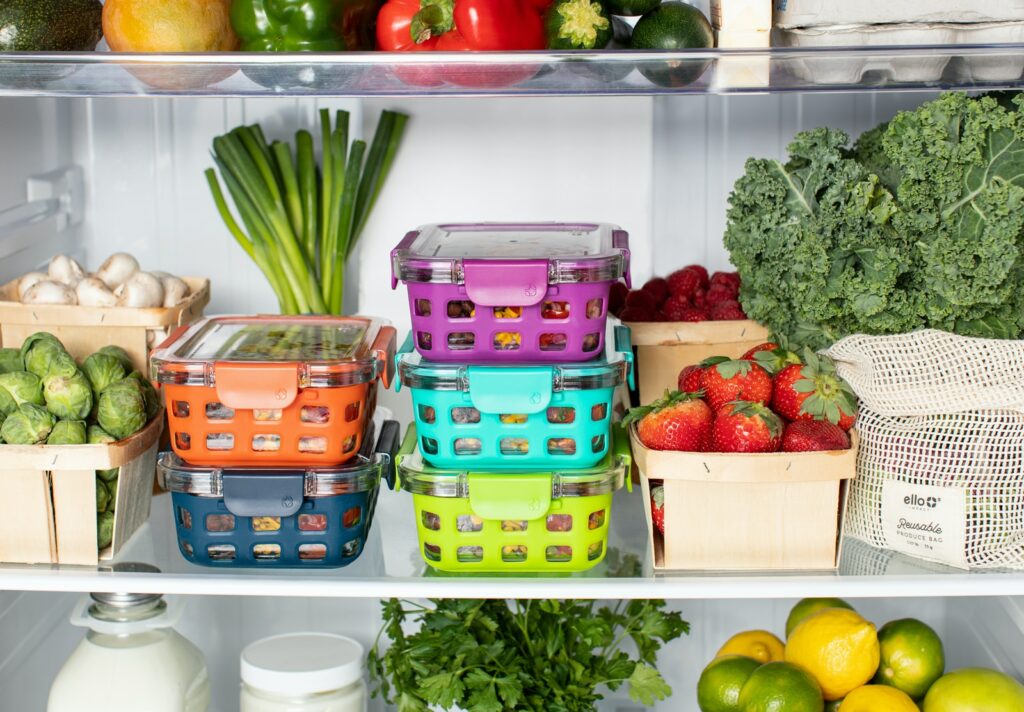
Eating well is fundamental to good health but sometimes this can feel like an uphill struggle, for a reason that may surprise you!
It’s not about motivation, willpower or taking action, but it can actually be due to a lack of clarity in your kitchen. Having an overstocked larder is daunting and can make it difficult for you to find what you need quickly, if at all! It is the same with the fridge if it is jam packed with everything from fresh fruits and vegetables to nut butters and condiments.
It’s a common misconception that we should be storing most foods in the fridge. In fact, there are many foods you shouldn’t keep in the fridge; not only are some foods unsuitable to be stored in the cold but many foods are more flavoursome, have a better texture and can even last longer at room temperature, which for most households varies from around 18 to 22 degrees.
Furthermore, some foods that are left out at room temperature can even contain more nutrients.
But there’s another factor that comes into play. Did you know that keeping a fridge crammed with food makes it less effective? By ensuring space in your fridge, you allow cold air to circulate more freely, ensuring your food stays chilled. Of course, this also makes it easier for you to see what’s actually in your fridge, so you can whip up a meal quickly and hopefully avoid overbuying.
Want to learn how to prepare healthy meals easily and intuitively without wasting the food you buy…or spending hours planning with pen and paper?
Check out this video course with comprehensive ebook included for easy reference
There are plenty of foods that simply shouldn’t be kept in the fridge and I’ve rounded up the common ones I come across. If you’re storing these foods in the fridge, it’s time to change your ways and free up valuable space in your fridge!
-
Tomatoes
Tomatoes continue to ripen out of the fridge. Not only does this avoid the become watering and tasteless, but the rich colour that develops as it ripens also means higher lycopene content; the antioxidant in tomatoes give it its red colour.
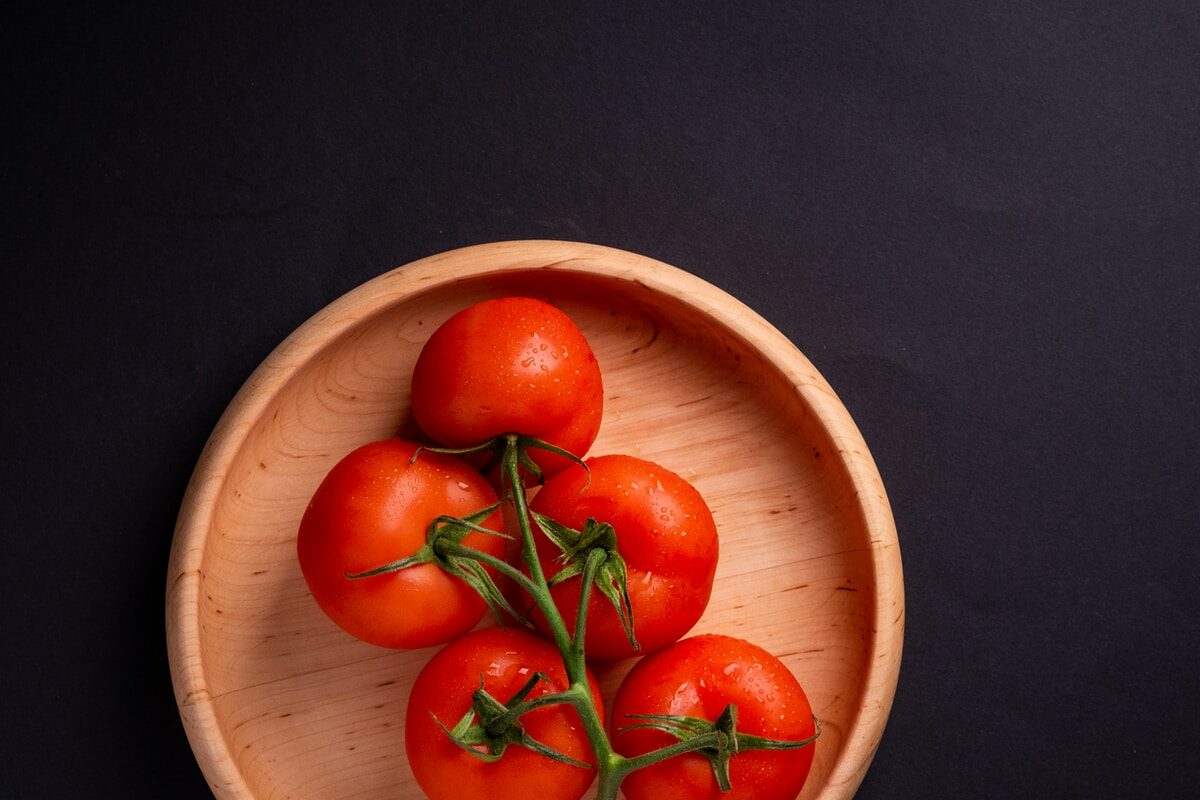
-
Avocado
The best way for an avocado to ripen is at room temperature; if they are stored in the fridge, they will end up mushy rather than ripe. Once they’re ripe, they can be stored in the fridge for a day or so. Of course, it’s not always easy to get it right with avocado, so you’ll still need to check if the flesh is beginning to feel soft before you take the plunge and open it!
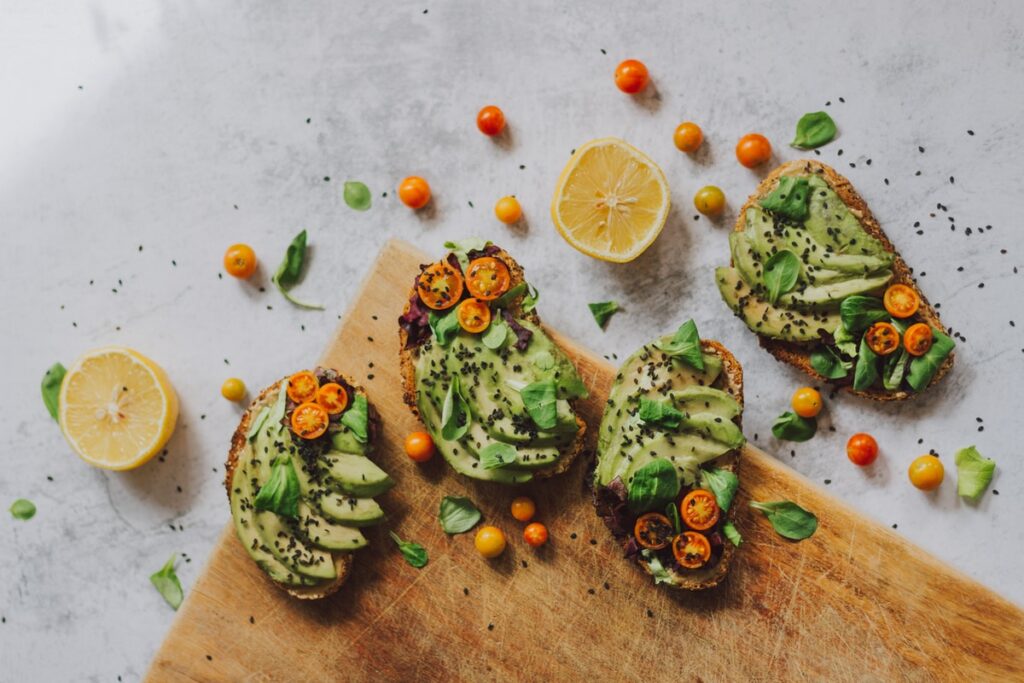
-
Onions (and Garlic)
Onions should ideally be stored in a dark, dry spot. But definitely not in the fridge where they will end up more moist and soggy and more likely to spoil faster. Garlic also prefers a dry spot, otherwise, it will sprout and become mouldy.
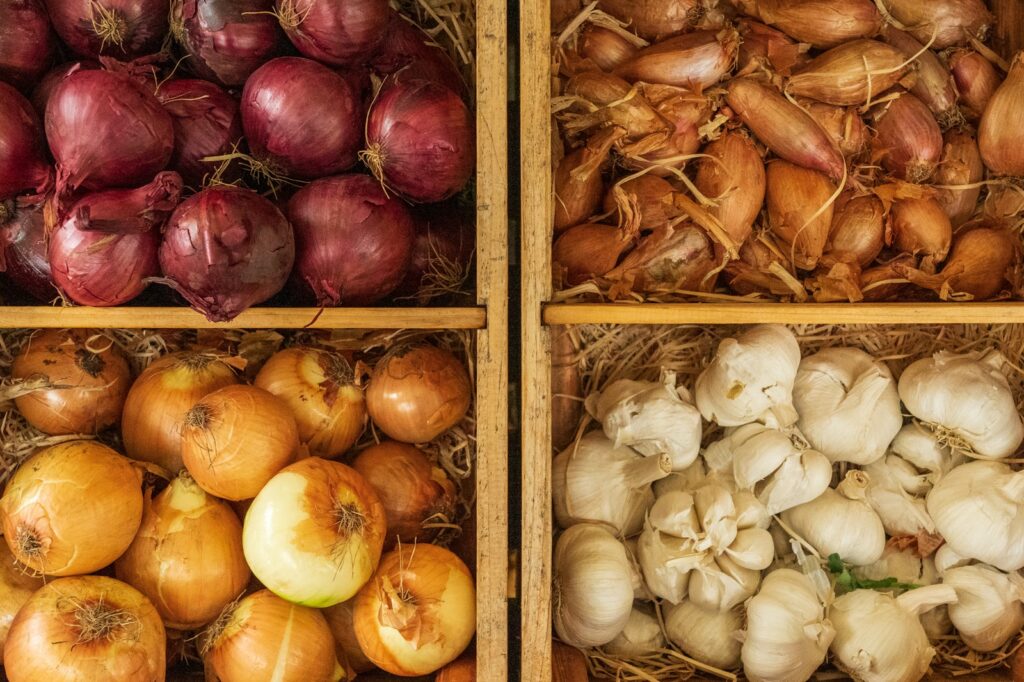
-
Potatoes
Storing potatoes in the fridge will encourage the starch to convert to sugar, which will affect their taste and also end up with a more gritty texture. Potatoes should be stored in a dark dry place and will easily last 2-3 weeks.

Sweet potatoes also should be kept in a cool dark place to ensure they maintain their texture. -
Bread
Whilst it may appear that bread stored in the fridge lasts longer, in fact, it can cause the bread to dry out quickly so it hardens and become stale quicker. It’s best stored in a cool, dry place and if it looks like you won’t be able to finish it soon, then freeze it rather than putting it in the fridge.
-
Unripe Fruit
Most soft fruits like apricots, peaches and plums will ripen at room temperature and be more flavoursome for it. Once they’re ripe, they can be stored in the fridge if you’re unlikely to eat them soon.
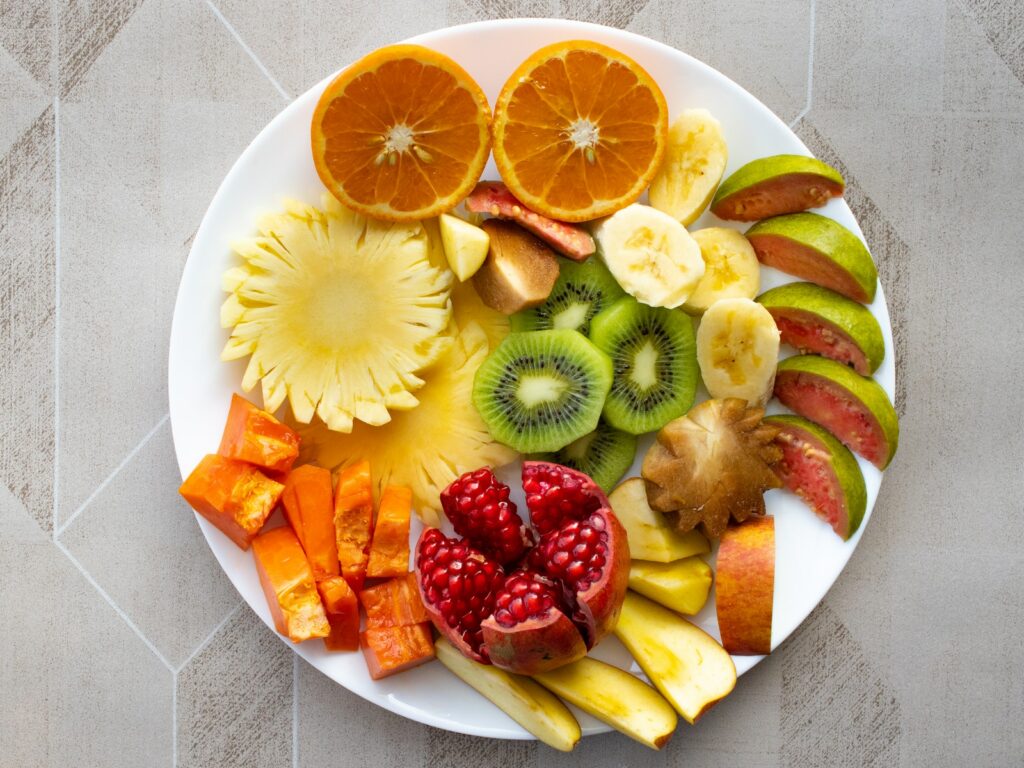 Tropical Fruits
Tropical FruitsFruits like mangos, pineapple, kiwi and bananas are used to hot climates and hate the cold! They’re best stored in a fruit bowl on your kitchen worktop. If you’re unlikely to eat them soon, then peel and slice them and freeze them.
Citrus fruits
Likewise, fruits such as lemons, oranges, limes and grapefruits are also best stored outside of the fridge. They’ll be far more juicy and flavoursome for it.
-
Peppers
Red, yellow and orange peppers will continue to ripen out of the fridge and will be more sweet tasting for it. They will be perfectly fine on your kitchen worktop, where they’re also in full view so you’re less likely to forget about them.
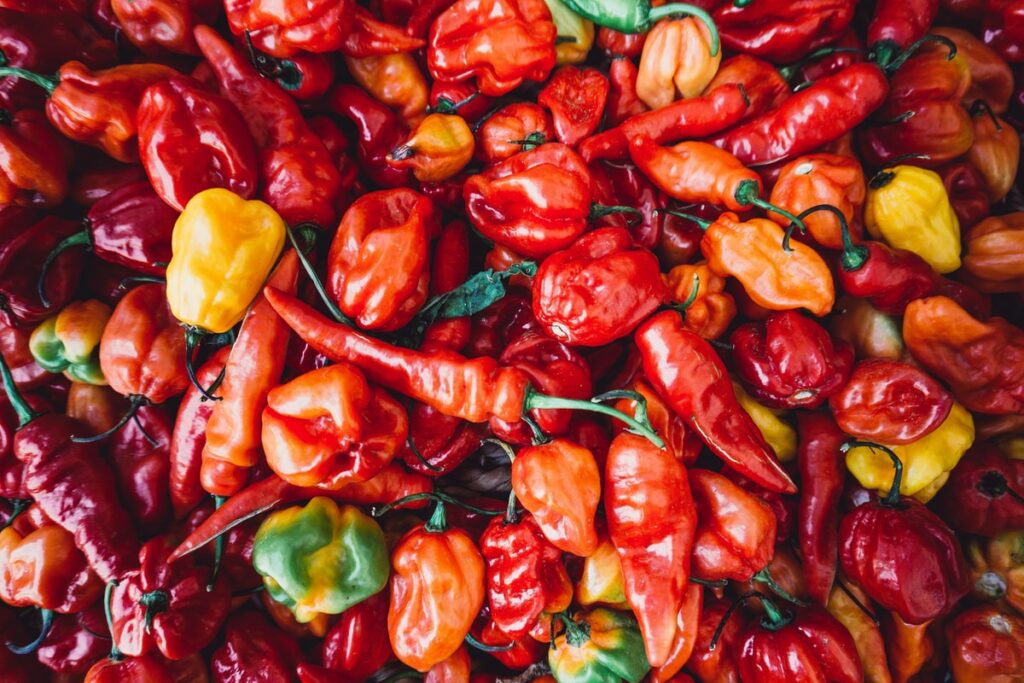
-
Aubergines
These do not need to be stored in the fridge but also, not somewhere that is too warm otherwise they’ll end up dry and shrivelled. A cook dark spot, away from direct sunlight is ideal.
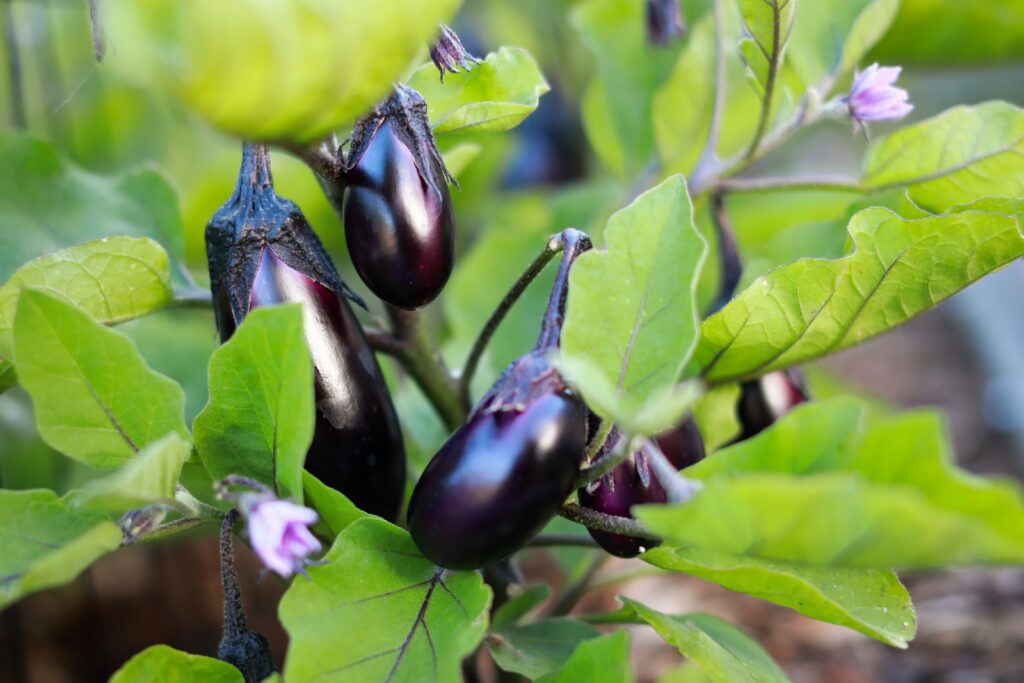
-
Fresh Herbs
Herbs like parsley, mint, coriander and basil benefit from being stored in a glass of water. In the fridge, they can become moist and soggy. However, Mediterranean herbs like rosemary, thyme, oregano or sage can be rolled in a piece of moist kitchen paper and stored in an airtight container or plastic bag in the fridge to keep them fresh.
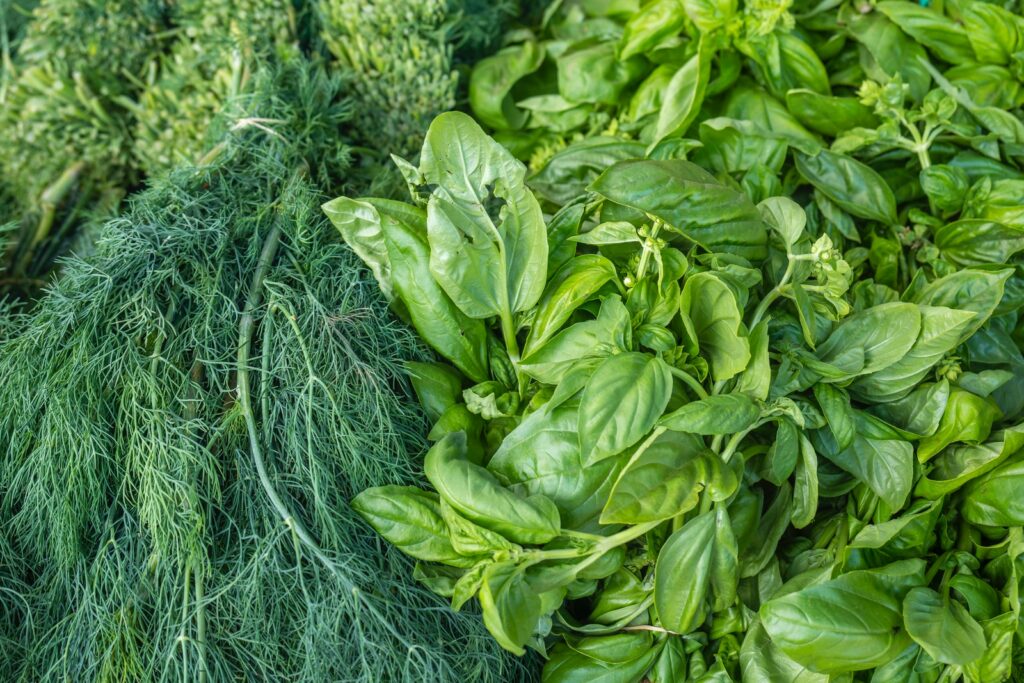
-
Eggs
This is an interesting one as psychologically, eggs are considered a fresh item and should automatically be stored in the fridge. But think about where you have picked them up in the supermarket; certainly not the chilled aisle! No need to refrigerate and you’ll also get better results if you’re using them from room temperature. The shell provides good protection to prevent bacteria from entering the egg.
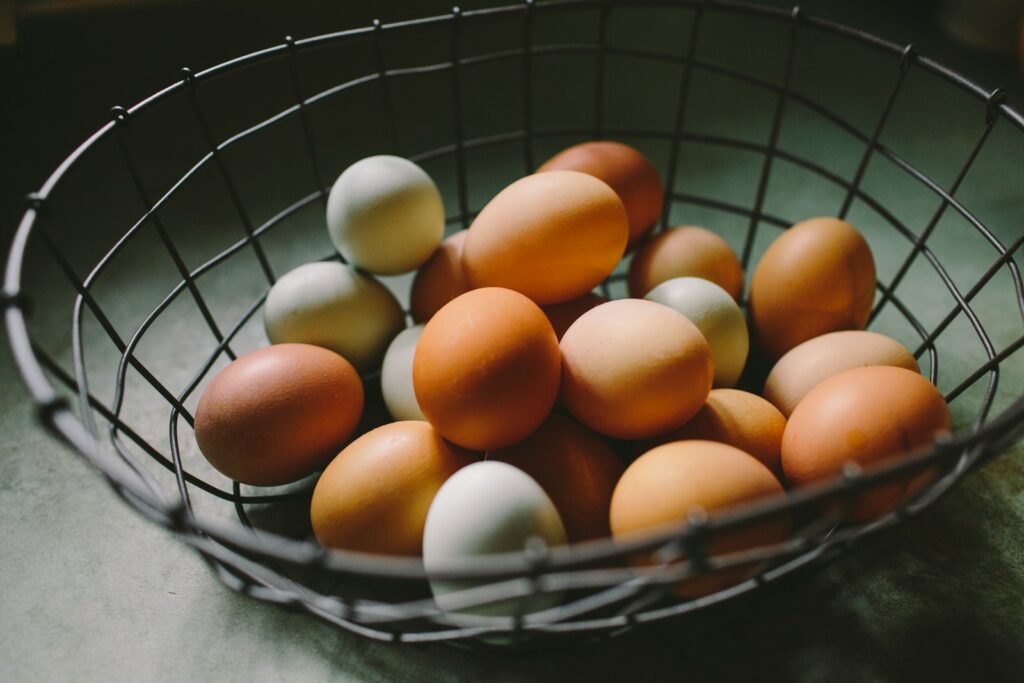
-
Butter
Contrary to popular opinion, despite butter being a dairy product, it can safely be stored out of the fridge in an airtight container for a few days. Choose a cool spot and away from direct sunlight. However, if you’re unlikely to finish a block quickly, then it is best to store it in the fridge.
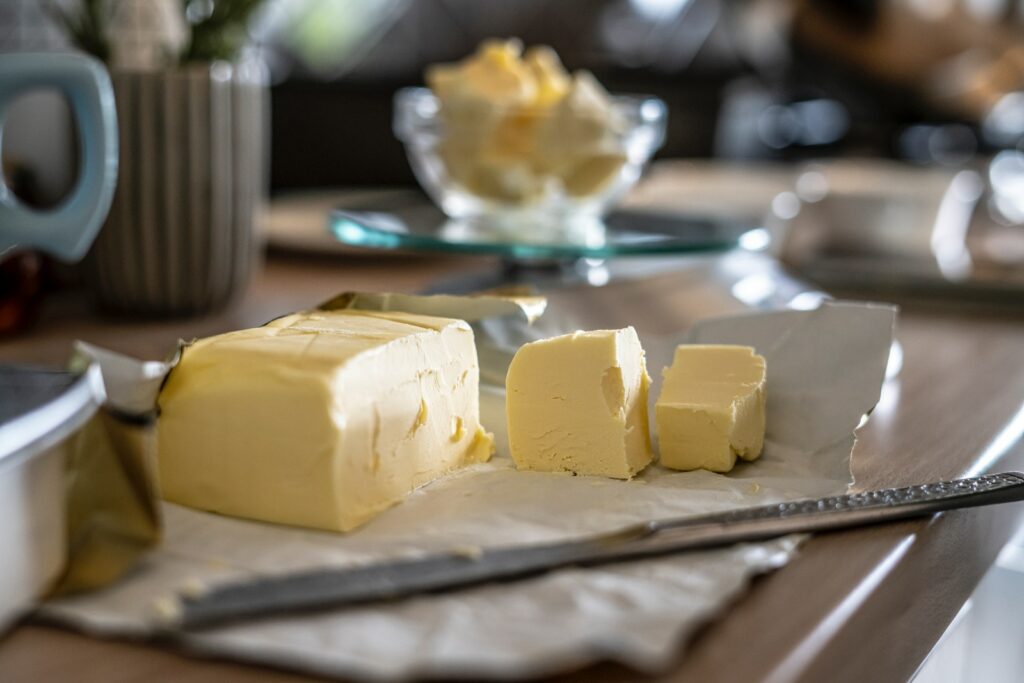
How about the larder foods you shouldn’t keep in the fridge?

Whilst you can keep in these foods in the fridge, there is no need to and these are an easy way to ease the clutter and free up some fridge space;
-
Soy sauce
It’s laden with salt which is a preservative! Bacteria and any other nasties will not grow and therefore will not go “off”.
-
Pickles
Again, the high salt needed for the pickling process acts as a natural preservative.
-
Chilli sauce
Most brands do not need to be refrigerated after opening. It’s got plenty of potent ingredients, including spices, vinegar and preservatives to keep it from going off.
-
Salad dressings
Whether it’s homemade or shop-bought, most dressings will contain lemon or vinegar as well as oils and will be perfectly fine stored at room temperature for a few days until it’s used up.
-
Cake
Unless the cake is topped with fresh cream, cake can be stored at room temperature in an airtight container for a few days. It will taste much better.
-
Nut butters
Most nut butters will become hard in the fridge making it much harder to spread. It’s also harder to mix in the oils that have separated if it’s too cold, so it’s not the best consistency for spreading. It can last around 6months opened at room temperature.
-
Coffee
Coffee, beans or ground will lose flavour more quickly if stored in the fridge and can also pick up odours from other foods.


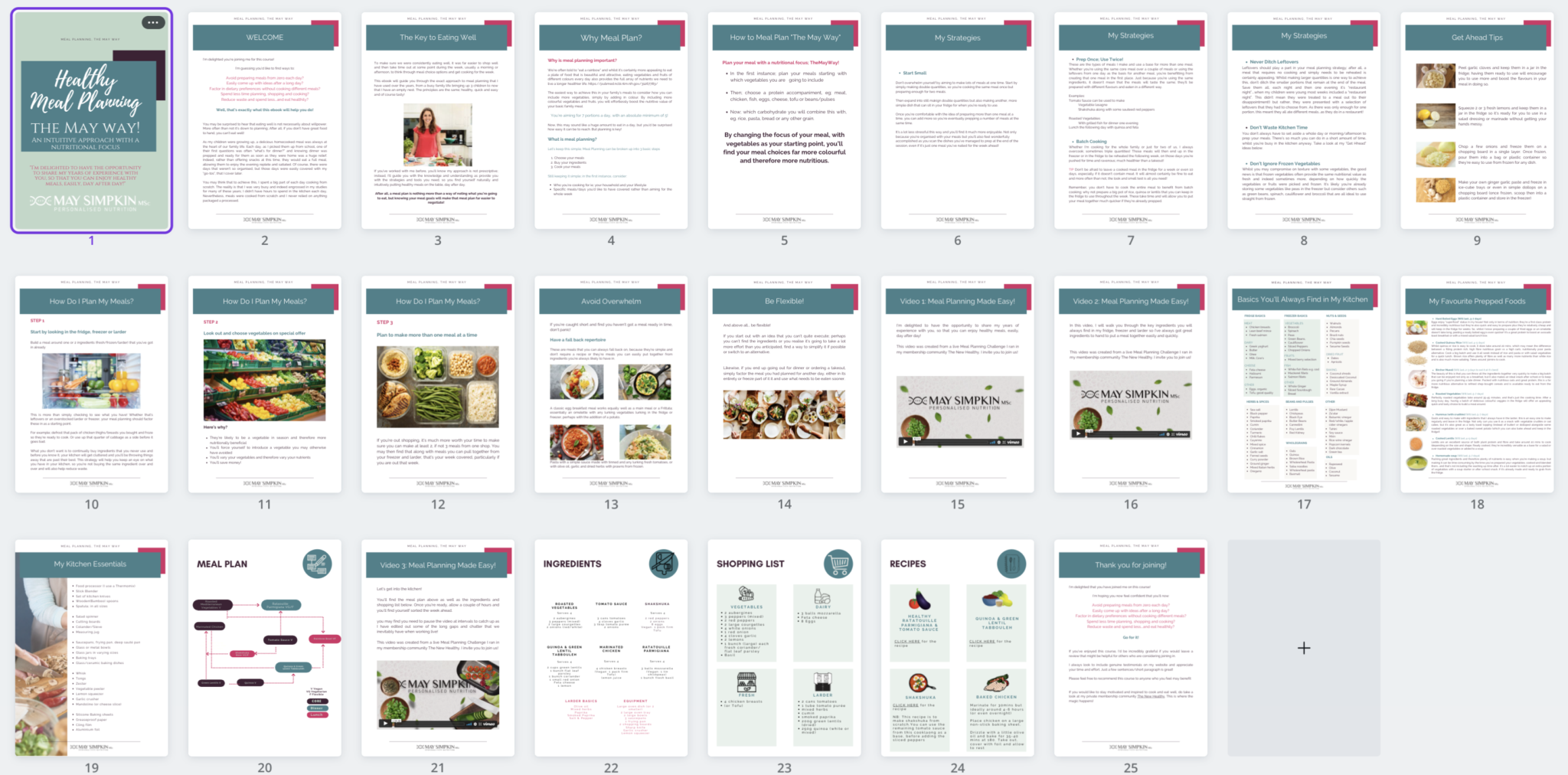

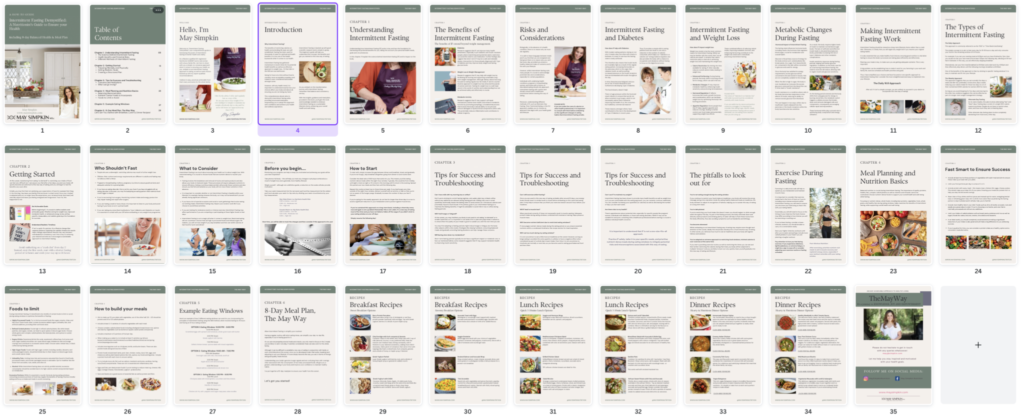


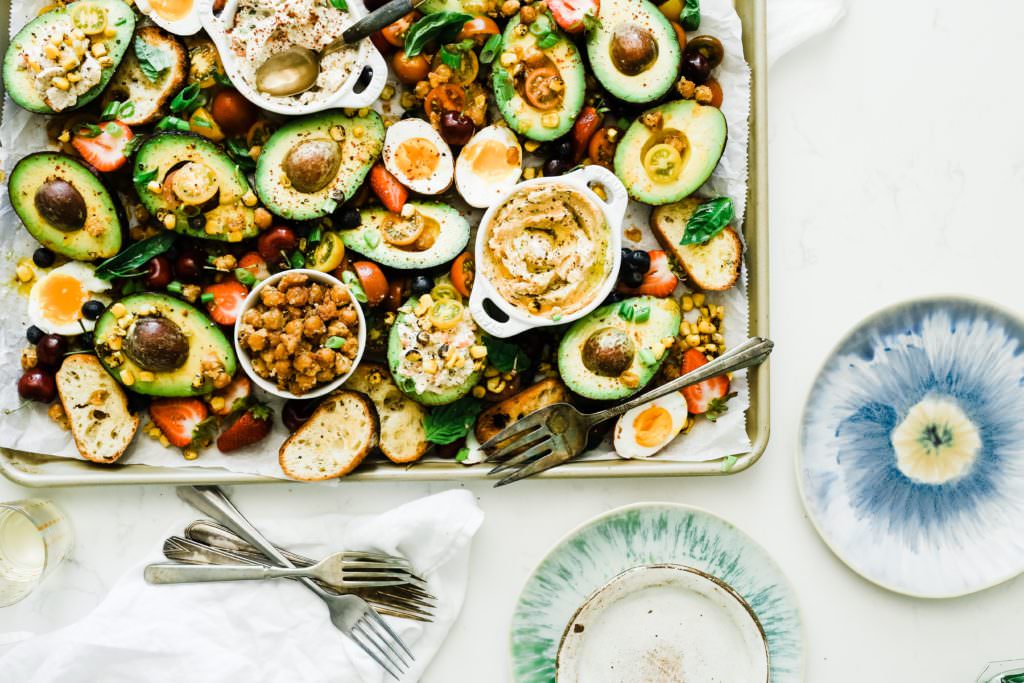

0 Comments